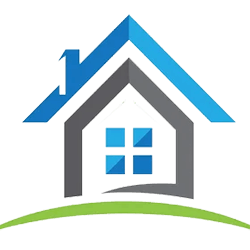What makes a home the perfect home? Here are some things to look for.
Do you want a yard or a condo in a high-rise? Nearby nightlife or a great school district? Finding the right home and the right neighborhood takes a lot of time. But it can also be a lot of fun. Use this guide to help you weigh your options and uncover important considerations.
Home Types
Different kinds of homes offer different benefits. Here’s a quick overview of your style options.
- A single-family home is a free-standing house with its own surrounding lot. It can vary greatly in size, number of rooms, style, and layout. Some even feature a garage or a pool. A single-family home is often the most private kind of home you can buy.
- A condominium, also known as a “condo,” is a unit that generally shares a wall or other structural part with an adjoining unit, so it’s not as private. In a condo, you only own the space inside your unit, so that’s all you pay taxes on. A management company typically handles maintenance and upkeep of the home’s exterior and yard. You’ll pay homeowners’ association (HOA) fees to cover your share of those expenses—and those fees aren’t tax deductible.
- Planned Unit Developments (PUDs) are usually freestanding houses with yards. But, as with a condo, there are usually rules you need to follow that guide the appearance of your house and your yard. You’ll also typically pay HOA fees that go toward maintenance, security, and other services.
- Housing cooperatives, or “Co ops,” are essentially corporations that own a building that has multiple units. When you buy a share in the corporation, you’re buying the right to live in a unit of the building. Like a condo, you usually enjoy a property management company who takes care of the maintenance.
Neighborhood Considerations
To be happy in your new home, you also have to be happy in your new neighborhood. Here are some factors to take into consideration.
- Schools. If you have kids, or hope to in the future, the quality of the local public schools will be an important consideration. How are the schools rated? What’s the dropout rate? How far will your kids have to travel to get to school? A good real estate agent should be knowledgeable about this. But you can look into it yourself through your own web research.
- Safety. How many crimes take place in the neighborhood? What kinds of crimes are most common? Will you feel safe going out and about with your family? Talk to your real estate agent about local safety. You can even talk to local police and research crime statistics online.
- Traffic. How long will your commute to work be? Are the streets around your house busy? Does the traffic make it noisy? How easy is it to run errands like grocery shopping and getting gas?
- Privacy and neighbors. Does the neighborhood have the personality that you’re looking for? For instance, are there a lot of children playing in the neighborhood, or is it quiet? You may want to talk with neighbors to get a good feel for the neighborhood.
Homebuyer’s Checklist
As you begin to visit houses, you’ll start to get a feel for what styles you like, and what features are most important. Do you want a garage? A large yard? More square footage? A certain number of bedrooms and bathrooms? Be sure to bring a camera to help remember the properties you’ve visited, and to document details and styles you like.
You can use our comprehensive homebuyer’s checklist to get a feel for all the unique features to look for as you start house hunting. You can download the checklist, print it out and use it to keep track of the properties you visit.

